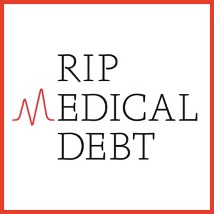March 18, 2022 / MONEYWATCH
By Aimee Picchi
Medical bills have become a source of major financial trouble for millions of Americans, amounting to the largest source of personal debt in the U.S. Now, the top three credit reporting agencies plan to drop most medical debt from consumers’ credit reports starting this summer.

Equifax, Experian and TransUnion on Friday said that they are making a number of changes to the way they handle medical debt on credit reports, which is a record of a consumer’s borrowing and repayment. Lenders use credit reports to determine whether a consumer is a good bet for a loan, which means a poor credit score can make it hard to get a mortgage, car loan or other products. Credit reports can also affect people’s ability to rent an apartment and even get a job.
The announcement comes as federal regulators and consumer advocates are increasingly scrutinizing the issue of medical debt, with the Consumer Financial Protection Bureau earlier this month criticizing the nation’s medical billing system for failing consumers. Errors related to medical debt are common on credit reports, and consumers often have difficulty clearing up the problems, the agency said.
Roughly 1 in 5 U.S. households carry debt related to health care, according to the CFPB.
The three top credit reporting agencies said they are making several changes in how they handle medical debt. They include:
- Paid medical debt will be dropped from consumers’ credit reports
- The time period before unpaid medical debts in collections will appear on a credit report will increase from 6 months to 1 year
- The credit bureaus will drop medical collection debt under $500 from credit reports
“Medical collections debt often arises from unforeseen medical circumstances,” said Mark W. Begor, CEO Equifax; Brian Cassin, CEO Experian; and Chris Cartwright, CEO TransUnion, in a joint statement.
The changes will allow “people across the United States focus on their financial and personal wellbeing,” they added.
Government on the case
Ted Rossman, a senior industry analyst at Bankrate, said in a email that removing paid medical bills from people’s credit report will boost their credit score. “The fact that new unpaid medical collections won’t be reported for at least a year is also a consumer-friendly change that will give patients more time to sort out these bills with their insurance company – which is often a time-consuming and frustrating process,” he added.
The CFPB, which was created in the wake of the 2008 financial crisis, supervises the credit agencies. Its March 1 report on medical debt warned that it planned to “hold credit reporting agencies accountable” for inaccurate medical debt on consumer reports. The agency also said it planned to determine whether unpaid medical billing data should be included in credit reports.
Americans complain about the big three credit reporting agencies more than any other topic, according to analysis of complaints by the CFPB. More than 6 in 10 of complaints received by the CFPB in 2021 were related to Equifax, Experian or TransUnion, the agency said.
Congress last year sought to address the problem of runway medical bills by passing the No Surprises Act, which protects people with health insurance from getting billed for receiving emergency medical care outside of an insurer’s network. Patients are still responsible for any deductibles and copays they normally would have to pay under their plan, but they may only be billed at their plan’s in-network rate.
Before the No Surprises Act, if you had health insurance and received care from an out-of-network provider or an out-of-network facility, even unknowingly, your health plan may not have covered the entire out-of-network cost. This could have left you with higher costs than if you got care from an in-network provider or facility. In addition to any out-of-network cost sharing you might have owed, the out-of-network provider or facility could bill you for the difference between the billed charge and the amount your health plan paid, unless banned by state law. This is called “balance billing.” An unexpected balance bill from an out-of-network provider is also called a surprise medical bill.
People with Medicare and Medicaid already had these protections and are not at risk for surprise billing. When using an out-of-network service provider however, a Medicare Advantage plan member will pay the out-of-network coinsurance for the plan (often 40% of the Medicare approved amount for the service).
Greg Says would like to stress the need for Cancer or Critical Illness coverage to help avoid the problem of high medical debt.
A recent survey from the American Cancer Society Action Network reports that 50% of cancer patients or survivors say they have incurred medical debt related to cancer, and 73% of them worry about affording current or future care. Other findings: 1) Women were more likely to report medical debt (57%) than men (36%). 2) African Americans (62%) were more likely to incur debt than white patients (52%). 3) Most respondents (62%) with medical debt delayed or avoided medical care for minor issues; nearly half (45%) delayed care for serious issues. 4) To afford care, respondents delayed major purchases (36%), went through most or all of their savings (28%), took on more credit card debt (28%), and borrowed from relatives and friends (20%). And most of those surveyed had some type of health insurance.
Cancer and Critical Illness insurance coverage is relatively inexpensive but does require underwriting; so it’s best to apply while one is in good health.